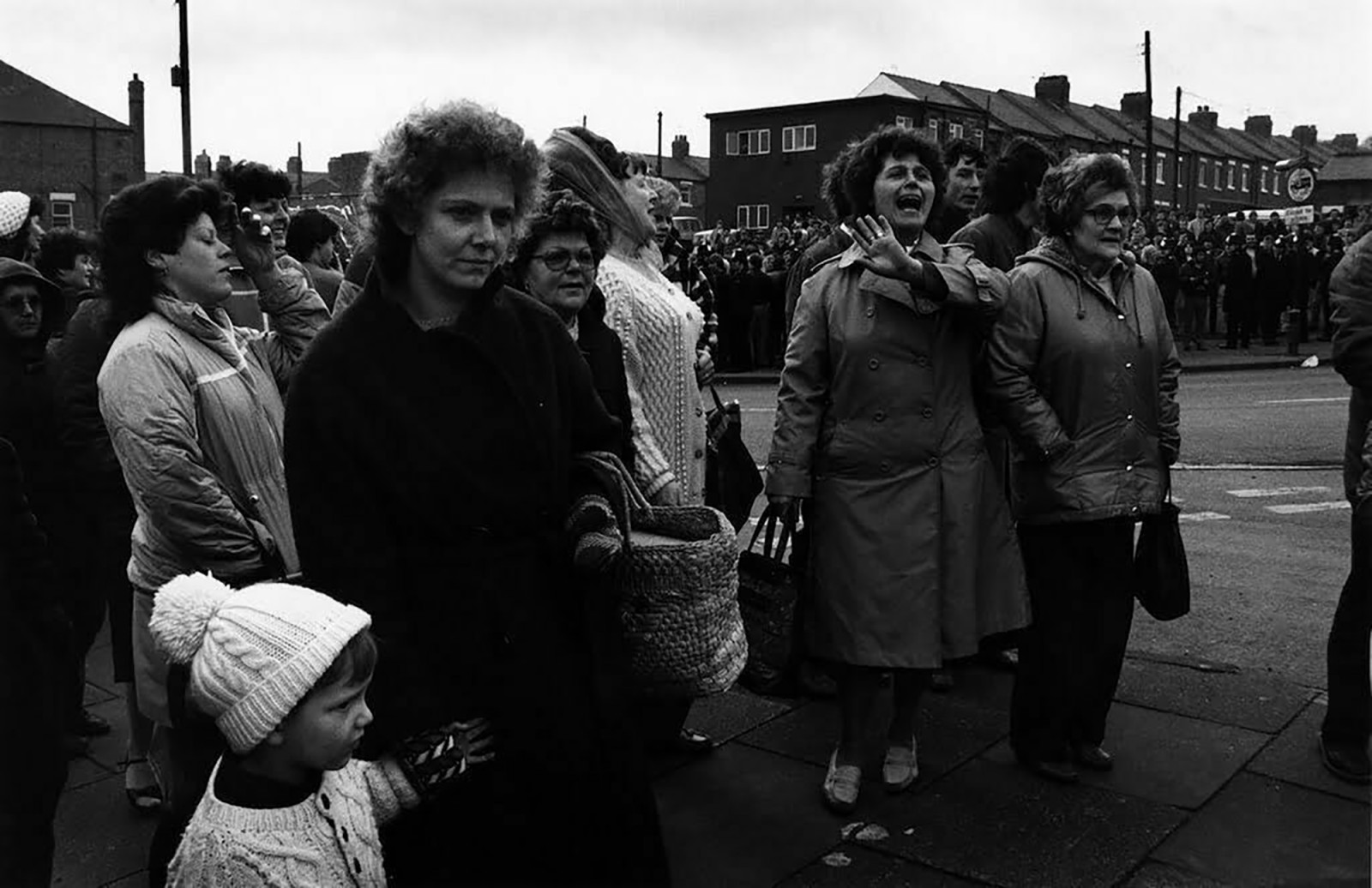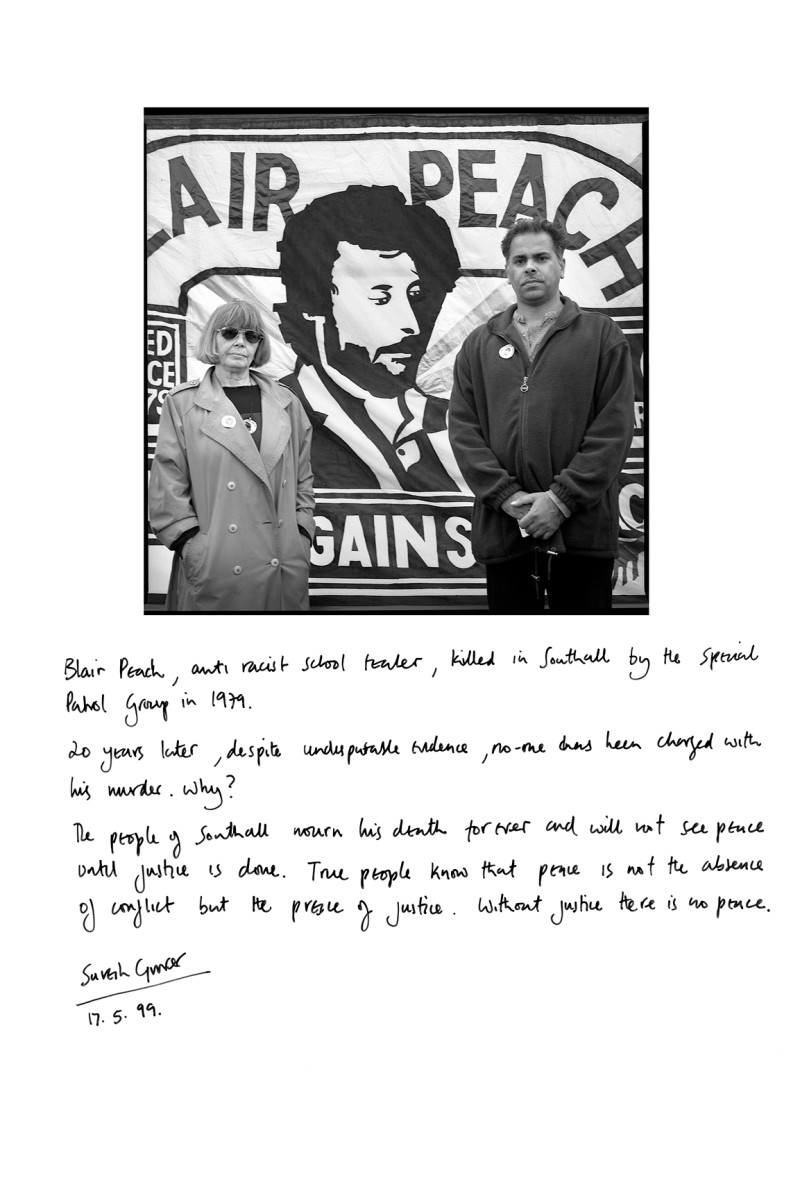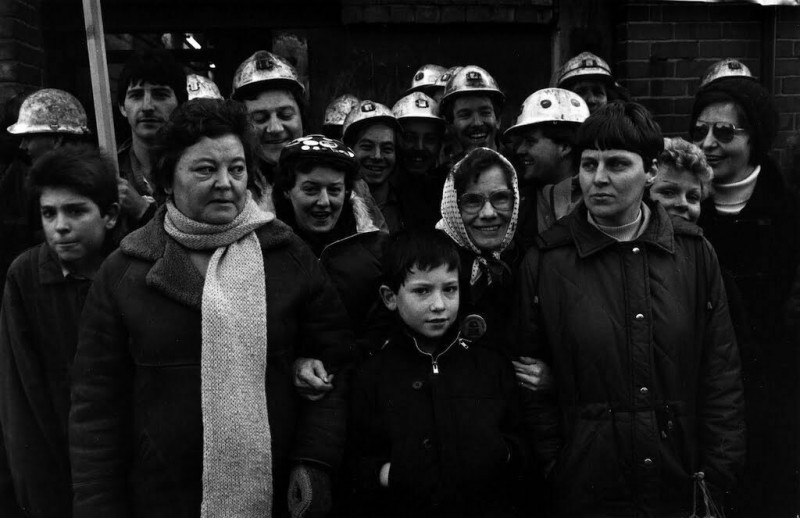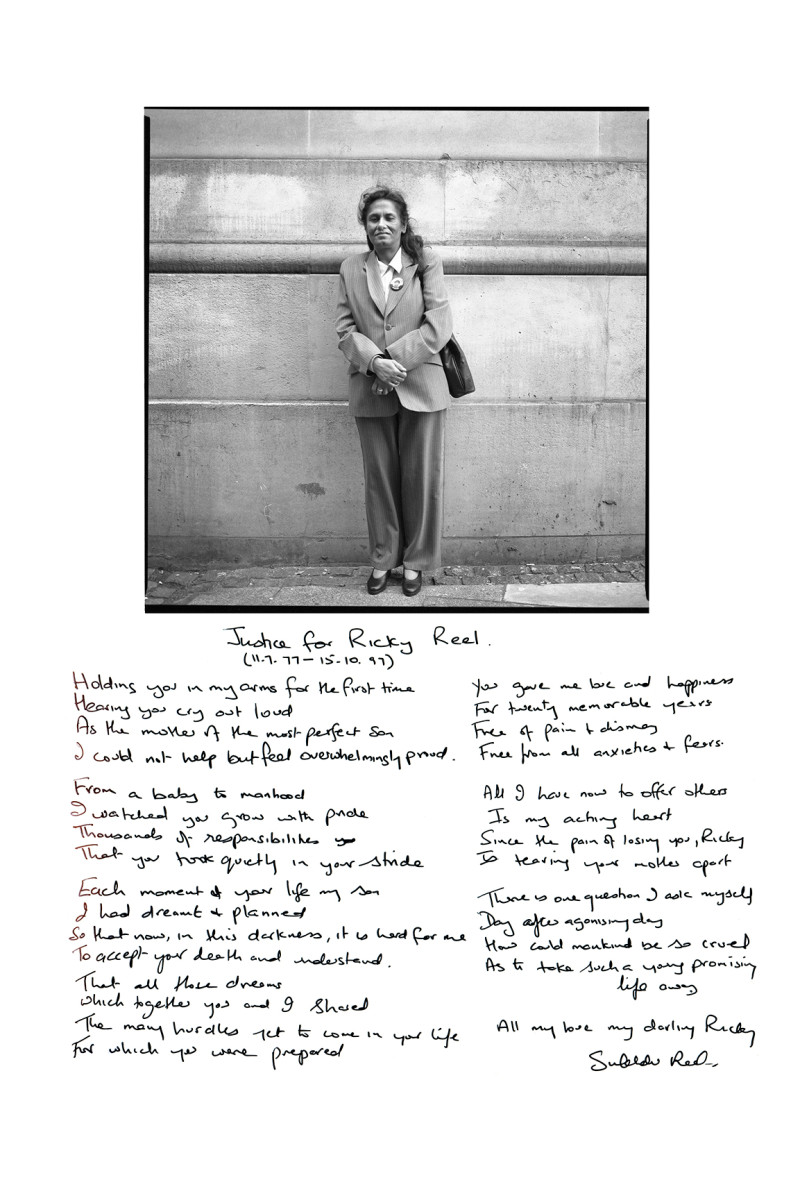Citizens of Our Time
Gary Calton | Izabela Jedrzejczyk | Amber Films

Citizens of Our Time
Gary Calton | Izabela Jedrzejczyk | Amber Films
Exhibitions
Side Gallery
As the Police, Crime, Sentencing and Courts Bill reaches its final stages in parliament, ‘Kill the Bill’ protestors continue to take to the streets, condemning it as an attack on our civil liberties. Side Gallery explores the motivations and methods of individuals and communities who have been compelled to campaign and protest through the work of Gary Calton, Izabela Jedrzejczyk, and Amber Films.

"Citizens of Our Time" by Gary Calton
Gary Calton's Citizens of Our Time is an ongoing, collaborative, multimedia collection of campaigner portraits covering a wide range of issues that have engaged the UK population over the past 25 years.
Initiated in 1997, it represents everyday people, many of whom were protesting for the first time, compelled to take to the streets after exhausting all other avenues. From deeply personal causes to those local, national and international, many have led to a change in government policy, whilst others have educated and informed the public, creating a groundswell of opinion. There are successes and failures, but all sincerely believe in their message.
Calton's collaborative approach involves campaigners writing directly onto silver gelatine prints posted to them by the photographer. It is an active process which requires trust and reciprocity. Inevitably, some fail to be returned. Still, many find their way back to him, resulting in unique artefacts that also address some of the traditional power imbalances between the photographer and the photographed.
Citizens of Our Time is a historically rich document and a social commentary on late 20th and early 21st Century Britain.
"History will be the Judge of many campaigns, and far from flying in the face of consensus, many have managed to shape it."
"What Happened Here?" by Amber Films
Easington Colliery lies by the sea on the eastern edge of what was once the Durham coalfield. In 1984 photographer lzabela Jedrzejczyk became involved with and documented the activities of nineteen local women who came together to organise support for the community during the miners' strike.
All the support group activities were based at The Colliery Club. The club became campaign headquarters for advice and support, food and clothing. The group met to plan their fund-raising activities, discuss the weekly menus and food parcel distribution, and prepare daily hot meals for striking miners' families.
The women's co-operation saw the community through great hardship. Such activities had to find a place beside the women's other roles as wage earners, mothers, wives and housekeepers. Among themselves, they forged lasting bonds of friendship.
Thirty-five years later, on August 24th, 2019, Amber helped stage a Miners Picnic to remember with pride the efforts the people of Easington had made to protect their jobs and save their community. With support from the National Trust, What Happened Here is the film that came out of this year-long engagement. It makes extensive use of archive resources from the AmberSide Collection with photographs by Keith Pattison, lzabela Jedrzejczyk, Aidan Doyle and John Davies alongside footage from Amber Films, shot in Easington and Durham during the strike and its aftermath. It is a story of what happened during and after the strike, told by the community.

"Striking Women" by lzabela Jedrzejczyk
lzabela Jedrzejczyk's Striking Women series forms part of What Happened Here, the series documented the effective and organised approach by a group of women in Easington Colliery during the 1984 Miners' Strike.
Gary Calton is a photojournalist whose work covers the themes of health, social justice and identity. He has travelled extensively in Russia, the African continent, USA, Japan and the UK to produce his stories for editorial publications, as well as many leading NGOs. His editorial portraits and feature stories have appeared in numerous publications.
Born in Sheffield, in 1967, Gary trained and later worked as a teacher in London. In 1990 he enrolled on a Post Graduate course in Photojournalism at the London College of Printing. His first Documentary project on Young Offenders in the UK was published by The Observer Newspaper in 1992.
Gary has produced numerous documentary personal projects;
namely Working Mens Clubs, which looked at his childhood memories attending Britain's Social Clubs. Gary is based in Yorkshire, UK and works internationally.
For more information on Gary Calton visit: garycalton.com
lzabela Jedrzejczyk was born in London, Jedrzejczyk studied at Nottingham Trent before arriving in Newcastle in 1977 to start work at Side Gallery as an assistant. She joined Amber Collective along with photographers such as Chris Killip and Graham Smith and contributed to the collective's growing archive of life and work in the North East of England.
Jedrzejczyk was mainly known for her landscape work before 1980 when she embarked on the Jungle Portraits, a series of portraits taken in 1980 from the Northumberland Arms on North Shields fish quay, also known as The Jungle, a pub that was a favourite haunt of Amber.
She now lives in a small village near Carlisle, Cumbria.
The Amber Film and Photography Collective came together as a collective in 1968. Their work has focused on documenting working class and marginalised lives and landscapes in North East England. It formed part of a wider network known as the workshop movement in the late-1960s and 1970s. While many of these groups have disappeared, Amber has continued to produce highly regarded work.
Amber films have created a range of documentaries which focus on working class people in the region and beyond. As well as experimenting with form and documentary drama. For example in films such as Dream On (1991) a feature length film combining realism with fantasy elements to tell the stories of women living in the Meadow Well estate.
Find out more about Amber Films here:

